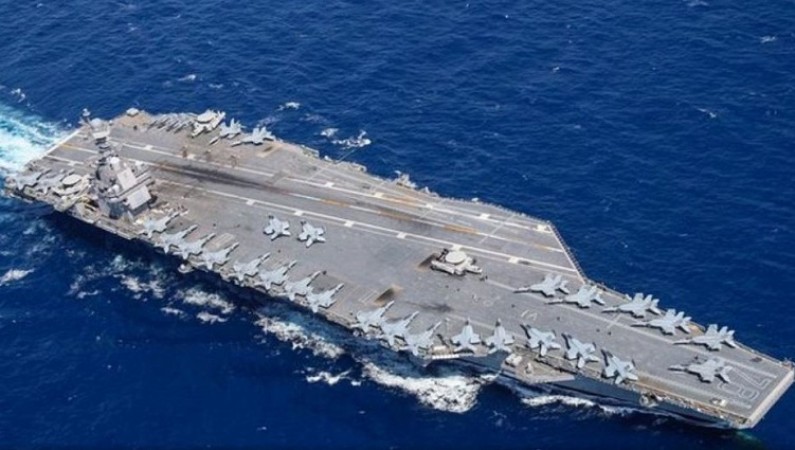
Hamas Attack Highlights: In a bid to display solidarity following the unexpected attack by the Palestinian armed group Hamas over the weekend, the United States has unveiled a series of measures to bolster its support for Israel. This response includes dispatching multiple military ships and aircraft to positions closer to Israel's borders. US Defense Secretary Lloyd Austin also announced plans to augment military aid and furnish Israel with additional munitions.
However, this robust show of support has elicited strong reactions from Hamas, with the group labeling the US's actions as "aggression" against the Palestinian population. In an official statement, Hamas asserted that the provision of an aircraft carrier by the US to bolster Israel constituted direct involvement in the ongoing conflict.
The weekend witnessed Israel launching a series of airstrikes in the besieged Gaza Strip, resulting in casualties on both sides of the conflict. Lloyd Austin acknowledged that the United States suspects Hamas's recent attack might have been intended to disrupt the potential normalization of relations between Israel and Saudi Arabia.
To reinforce its commitment to Israel, the US will initiate the transfer of security assistance beginning immediately. Furthermore, the United States plans to deploy additional fighter jets to the region. Notably, a carrier strike group, featuring the USS Gerald R Ford Carrier, and accompanying support vessels, has been ordered to position itself in the Eastern Mediterranean.
US President Joe Biden personally assured Israeli Prime Minister Benjamin Netanyahu that further assistance for the Israeli military was forthcoming. Meanwhile, Vice President Kamala Harris engaged in discussions with Israeli President Isaac Herzog to reiterate the United States' unwavering support.
According to Al Jazeera correspondent Alan Fisher in Washington, DC, the United States presently extends an annual military aid package worth $3 billion to Israel. Among the provisions in this package is support for Israel's Iron Dome system—an intercept system designed to counter incoming missiles and rockets. This system faced significant challenges during the recent escalation in hostilities.
US Secretary of State Antony Blinken suggested that Hamas's motivations for its recent attack might also be rooted in disrupting efforts to foster closer ties between Saudi Arabia and Israel. Blinken emphasized that it would not be surprising if this were a contributing factor, considering the broader geopolitical context in the Middle East.
Hamas has cited several grievances as driving factors behind its attack, including escalated Israeli actions in the West Bank, Jerusalem, and Israeli prisons. The group's leader, Ismail Haniyeh, highlighted concerns regarding the Al-Aqsa Mosque in Jerusalem, the enduring blockade on Gaza, and Israel's normalization efforts with other countries in the region.
Israeli Prime Minister Netanyahu had previously expressed optimism about the prospect of peace with Saudi Arabia, suggesting that such a development could reshape the Middle East. However, it's worth noting that Saudi Arabia has consistently emphasized the importance of Palestinian statehood as a precondition for recognizing Israel—a stance that has faced resistance from elements within Netanyahu's nationalist religious coalition.
Despite the recent escalation, the United States has underscored its belief that efforts to normalize relations between Saudi Arabia and Israel should continue. This signals a commitment to regional stability and diplomacy amidst the ongoing tensions in the Middle East.